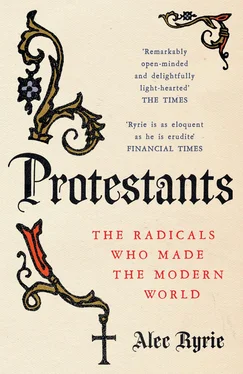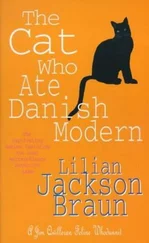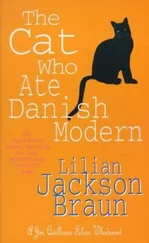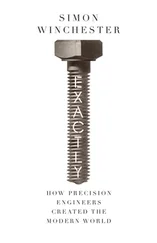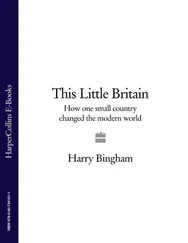If individual consciences are sovereign, then how can Christians ever again agree on anything? Eck’s point was essentially unanswerable. Much of the rest of this book is about the endless arguments that he correctly predicted. Some Protestants have tried to evade his charge. Others invert it: if the individual conscience is not sovereign, how can anyone call themselves Christian at all?
But it is worth noticing the detail of Luther’s position at Worms. He took his stand on two authorities, which he saw as intimately linked: his own conscience and God’s Word. The Word, he said, had his conscience captive, and it was neither safe nor right to disobey conscience.
The Bible’s role here was crucial. To appeal simply to inner conviction would have indeed looked like madness. But for Luther, an acknowledged expert in biblical interpretation, to take his stand on the Bible was altogether different. His stirring, empty offer to submit himself to its correction was widely imitated in the years that followed. This is the “Scripture principle”: the conviction that the Bible is the only and absolute source of authority and that all believers are equal before it. It is often taken to be Protestantism’s central, unifying idea. 13But, while it is certainly a pervasive one, it is not the whole story. Luther’s own relationship with the Bible was subtler than that.
What made Luther’s stance so outrageous was not that he valorized the Bible. That is hardly unusual for Christians. What was shocking was that he set it above everything else. He treated the views of the early Church fathers, of more recent scholars, even of Church councils, with great respect, but he would not be constrained by them. In the end, anything outside the Bible, including anyone else’s interpretation of the Bible, was a mere opinion. This was the true and enduring radicalism of Protestantism: its readiness to question every human authority and tradition. The formulation of the English Thirty-nine Articles, half a century later, captures the same spirit in a careful double negative:
Holy Scripture containeth all things necessary to salvation: so that whatsoever is not read therein, nor may be proved thereby, is not to be . . . thought necessary or requisite to salvation.
Not, everything in the Bible is essential; but, nothing that is not in the Bible is essential.
On the crudest level, this was a brilliant manoeuvre. In a Christian society which had always revered the Bible, which was rediscovering its original text in the midst of a scholarly vogue for ancient truths, which was ready to measure the Church’s hierarchy against its own ideals and find them wanting – in this context, for a monk and doctor of theology to stand alone, at risk of his life, and wield the Bible against all the forces of the establishment was dreadfully persuasive. Erasmus had called for a simple Christian life informed by Scripture. What could be simpler than the cry “Scripture alone”? It allowed Luther to shrug off every authority the Church could throw at him while still submitting to the highest authority of all. Best of all, the authority to which he was submitting could not answer back. As Erasmus would soon argue, this is Scripture for brawlers: turning the Bible into a stick with which to beat your enemies. Protestants have been weaponizing Scripture ever since, for use against outsiders and each other.
But this is too cynical. Luther was a superb scriptural street fighter, but that was not why he valued the Bible. We need instead to notice how apparently free and easy Luther could be with the Bible, to an extent that would shock many modern Protestants. It is not so surprising that he threw out the so-called deuterocanonical or apocryphal books of the Old Testament, the books such as Tobit, Ecclesiasticus and Maccabees, which survive only in Greek, not in Hebrew. Plenty of biblical scholars agreed with him on that, though it conveniently got rid of some theologically awkward passages. Yet he also dealt robustly with the rest of the Old Testament. He wanted to expel the book of Esther altogether. He thought that the books of Kings were more reliable than the books of Chronicles, doubted that large chunks of the Old Testament were actually written by their supposed authors, and reckoned that many of its texts were corrupted. He thought that most of the book of Job was fiction and that the prophets had sometimes made mistakes. He poured cold water on the huge numbers in the Old Testament narratives. 14
On the New Testament, Luther was only a little more restrained. He was famously scathing about the Epistle of James, whose teaching on the role of faith and good works does not sit entirely easily with his doctrines. He called it an “epistle of straw”, claimed that it “mangles the Scriptures” and “doesn’t amount to much”. Once he told a student, “I almost feel like throwing Jimmy into the stove.” In Luther’s Bible, James was yanked out of its normal place and sent to the end of the New Testament, along with three other books that he doubted were written by apostles (the Epistle to the Hebrews, the Epistle of Jude, and Revelation). His habit of singling out other parts of the Bible for special favour was almost equally unnerving. John’s Gospel was for Luther “the one, fine, true, and chief gospel, and is far, far to be preferred over the other three”. 15All of which suggests a Humpty-Dumptyish readiness to ignore what he disliked, choose what he wanted, and call it the Word of God.
That very brazenness tells us that this was not the whole story. Luther treated the Bible this way because of his understanding of what the Bible was. There is no doubting his profound debt to the Bible, where he had found the doctrines that shaped the rest of his life. Those doctrines were, for him, the Bible’s true heart. As he advised Bible readers in 1530,
Search out and deal with the core of our Christian doctrine, wherever it may be found throughout the Bible. And the core is this: that without any merit, as a gift of God’s pure grace in Christ, we attain righteousness, life, and salvation. 16
That was the message: the Gospel, the good news of Christ crucified and risen. The reason he called the Epistle of James straw was that for all its earnest moralizing “it contains not a syllable about Christ.”
This is why, at Worms, Luther said his conscience was captive to the Word of God, rather than to the Bible. The two were not quite the same. John’s Gospel teaches that Jesus Christ himself is the Word of God made human. The Bible, Luther argued, was the same Word of God “enlettered”, clothed in a body of ink and pulped rag. 17Therefore much of its content was incidental and unimportant. If that included some factual errors or contradictions, they did not matter any more than the fit of Jesus’ clothing. The message was what counted.
Luther used his Bible to fight his battles, and did so with relish, but before he was a brawler, he was a lover. The Bible had taught him about his beloved, and so he treasured it as a love letter. He understood it through the prism of that love. Everything that could not be read through this prism was unimportant. The Bible was not to be analysed like a scholarly text but to be gazed at like a great work of art. 18This was the only way that the Word of God could speak to your soul, and this was why every outside authority had to be rejected. Like that of a great work of art, the Bible’s power was to Luther self-evident. Unless, impossibly, you could persuade him that he had not seen what he had seen, there was nothing more to be said. The difficulty, inescapable after Worms, is that not everyone who gazes on a great work of art sees the same message.
Although Luther was allowed to leave Worms in safety, he was merely given a head start. For the rest of his life, he was a wanted man, and to the end of his days he was conscious of the Diet’s still-active condemnation hanging over him. The immediate effect was that halfway home he was kidnapped on the road by what seemed to be a band of brigands. His companions were aghast, but Luther had been warned to expect it. The “kidnappers” worked for his protector, Elector Frederick. They spirited him away to the Wartburg castle, near Eisenach, where he remained in hiding for nearly a year. His captors took elaborate steps to conceal his whereabouts, even spreading rumours that he had fled to Bohemia. 19He changed his monk’s habit for the clothes of a country knight and grew his hair and beard: a disguise, but also an assertion of the Christian liberty he preached. Yet, as he joked, in his confinement he was now more truly a monk than ever. He did not waste his time in captivity; he translated the New Testament into German, among other projects. But he chafed. In the first few weeks he was “drunk with leisure”. 20Soon he was brooding over what was happening in his unexpected absence.
Читать дальше
